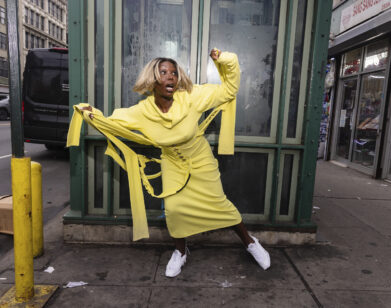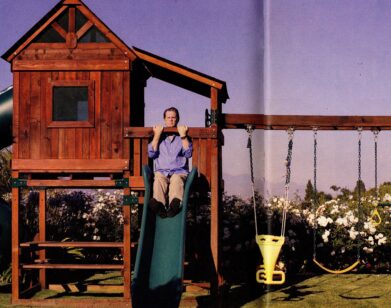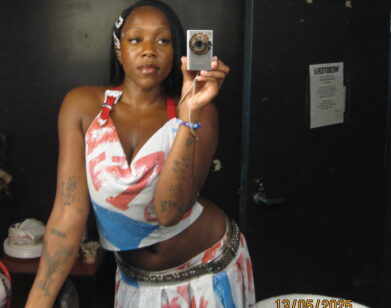Angelica Garcia is Listening to Donna Summer, Britney Spears, and the OG Selena
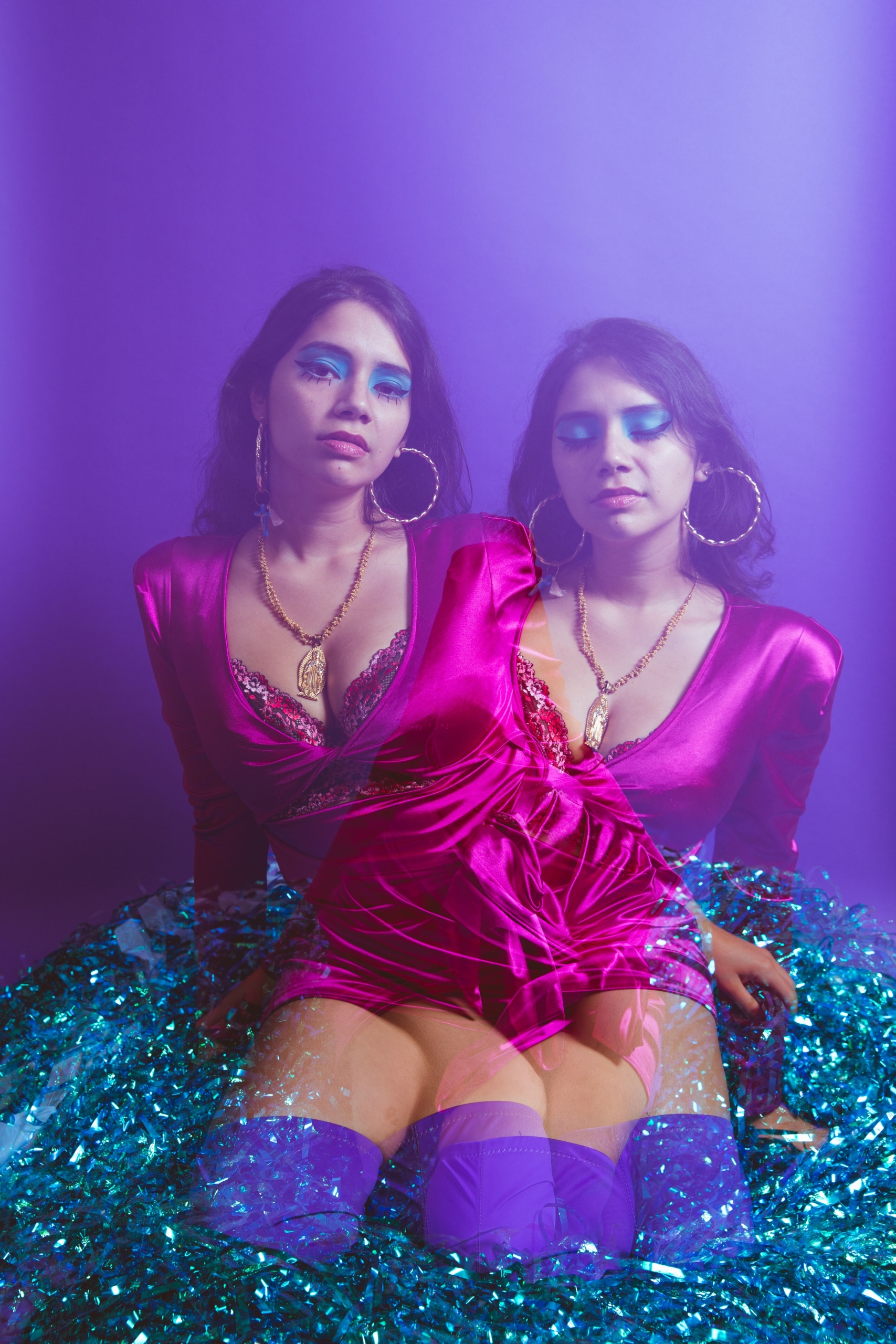
Photos by Katherine Myles.
This is “Add to Queue,” our attempt to sort through the cacophony of music floating in the algorithmic atmosphere by consulting the experts themselves. Our favorite musicians tell us about their favorite music—the sad, the happy, the dinner party-y, the songs they want played at their funeral. In this edition, we chat with Angelica Garcia, the L.A.-born, Virginia-based singer whose single “Jícama” was listed by President Obama as one of his favorites of 2019. Ahead of her new album Cha Cha Palace, Garcia spoke to us about the music that moves her, the inspiration behind her album, and her favorite Selena Quintanilla song.
———
ERNEST MACIAS: Why don’t you tell me a little bit about your journey with music?
ANGELICA GARCIA: I come from a really musical family on my mom’s side. Actually, my mom has been singing ever since she was a child. Her, my aunt, and uncle used to sing Ranchera music [Mexican folk music] and perform around Los Angeles at rodeos and clubs. Growing up, I was just another voice in the existing harmony. That’s what inspired me to sing. It wasn’t until I was probably a teenager that I first performed in front of people, and that was a very affirming thing.
MACIAS: It seems like you just went with it. One of your songs was picked by Obama as one of his 2019 favorites: “Jícama,” one of my favorite songs. Do you want to tell me a little bit about that?
GARCIA: I was totally, totally surprised to find that out. I woke up and my phone was just totally blowing up. I had no idea that was going to happen. We didn’t pitch Obama. So it’s pretty cool that he just heard my music and found out about it in an organic way.
MACIAS: The title of your album is Cha Cha Palace. I’m Mexican-American, so a lot of the music that you are making resonates with my upbringing. I really like how creative the names of the songs are—and how Latin-rooted they are.
GARCIA: Well, thanks. Part of the dilemma of being in Richmond, Virginia for the past four or five years, and just living in Virginia in general with my family, was that separation from the culture in Los Angeles that raised me. I didn’t really understand how much that impacted me until more time started passing and the older my grandparents got, the faster I saw my sisters grow up. I think a lot of this album is trying to connect back to my Chicano roots. To tell the story of a next-generation perspective on Mexican culture and Salvadorian culture and the home that raised me. Even though technically my blood is entirely Latina, I’m an American kid, and—it’s funny, something that’s really cool to observe with the Latinx movement that I’m seeing come into view so powerfully now, is that everyone has a similar story. I wanted to write about the things in my culture that impacted me, like “Guadalupe.” It’s a nod to the Virgen de Guadalupe. It’s a nod to my grandmother. She’s super Catholic, even though I’m not. But then, I’m also trying to look at things like machismo in Latinx culture. I’m definitely trying to start a conversation.
MACIAS: You said it yourself, it’s a Latinx revolution happening, and everyone has a different take on it. Yours is very female-centric. The music is so good. If you’re Latinx, you recognize it.
GARCIA: Well, thank you! I feel like, at least in my time in Virginia, I felt really out of place in a lot of spaces. I felt like maybe people like my voice, but like, “Does anybody know what I’m saying right now? Does anybody even know what jícama is?” That’s also kind of the point of the song, right? It’s okay if you don’t get it. I’m going to explain it. I’m going to break it down right now.
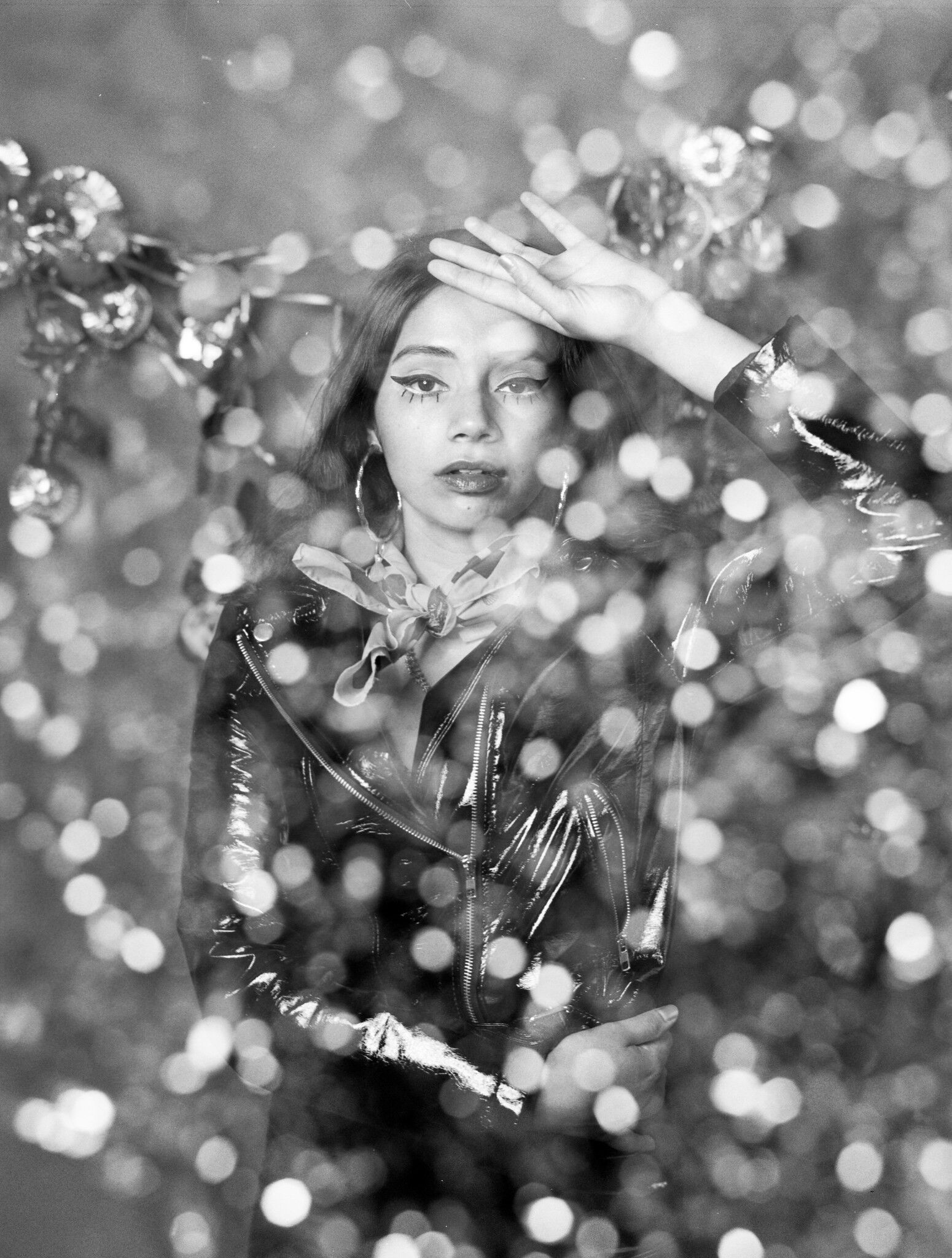
Photo by Katherine Myles.
MACIAS: I like that attitude. What was the last song you listened to?
GARCIA: I was like, randomly listening to the radio and they were playing songs from 2001. “No Letting Go” by Wayne Wonder.
MACIAS: Who was the earliest musician to influence you?
GARCIA: It would probably be my mom. But if you’re talking about like, people out in the world, I mean, I was a little girl growing up when Selena was queen. That was a really big thing in our household.
MACIAS: What’s your favorite Selena song?
GARCIA: Oh my god. Probably “Amor Prohibido,” but I also really love “Techno Cumbia”.
MACIAS: Oh, classic. What was your first concert?
GARCIA: My dad took me and my sisters to go see Britney Spears at the Staples Center.
MACIAS: Going from Selena to Britney Spears can’t explain a more Mexican-American upbringing.
GARCIA: It was the “Slave 4 U” tour, which is hilarious.
MACIAS: Oh my god. Lucky you!
GARCIA: My dad bought the tickets and they were totally way in the back. She was like a speck.
MACIAS: But you still went and got the experience at her prime. What’s your favorite movie soundtrack?
GARCIA: I feel like this is really basic and I’m sorry, but I love the Frida soundtrack.
MACIAS: Okay, that is a really good soundtrack.
GARCIA: I’m sorry it’s like, Selena, Frida. I really liked how there was like a blend of traditional folk songs and there was also this kind of scary and experimental stuff going on, too. I put that record on a lot when I’m painting.
MACIAS: Who would be your dream collaborator of all time and current?
GARCIA: I really love Chavela Vargas. I feel like I would die. I would just like, shrivel. I would just be crying. I couldn’t do it. But I also really love La Donna Summer.
MACIAS: That would be really good. What’s the song that always puts you in a good mood?
GARCIA: Honestly, now my brain is in a Donna Summer mode. “Last Dance.”
MACIAS: What are some songs you’d put on a playlist for a road trip?
GARCIA: Oh, I really love Solange‘s new album When I Get Home. I would definitely play that. Road trips are usually times when I like to listen to new things, too. So, it’s a good chance if anybody else is in the car with you to just share music.
MACIAS: You’re the first person I’ve interviewed to say that. Give someone else the controller or the aux cord, if you may. What would you play at a dinner party?
GARCIA: Oh, maybe some Betty Carter.
MACIAS: What about if you’re going through a breakup?
GARCIA: Probably Chavela Vargas. Honestly. “El Ultimo Trago.”
MACIAS: That’s like, sad sad.
GARCIA: I know, I know. But it’s kind of great. I was, like, really down and I was taking a bath and listening to it, and I was like, “Damn. I’m in it right now, but it’s okay.”
MACIAS: It’s an emotional release.
GARCIA: Totally.
MACIAS: What would you play when you’re high?
GARCIA: Thundercat, something off his album Drunk. [Laughter].
MACIAS: What’s your go-to karaoke song?
GARCIA: Well, it depends on how drunk you are. Usually something like Ciara.
MACIAS: If your life were a TV show, what would be the theme song?
GARCIA: Well, my gut just goes to “La Chona,” honestly.
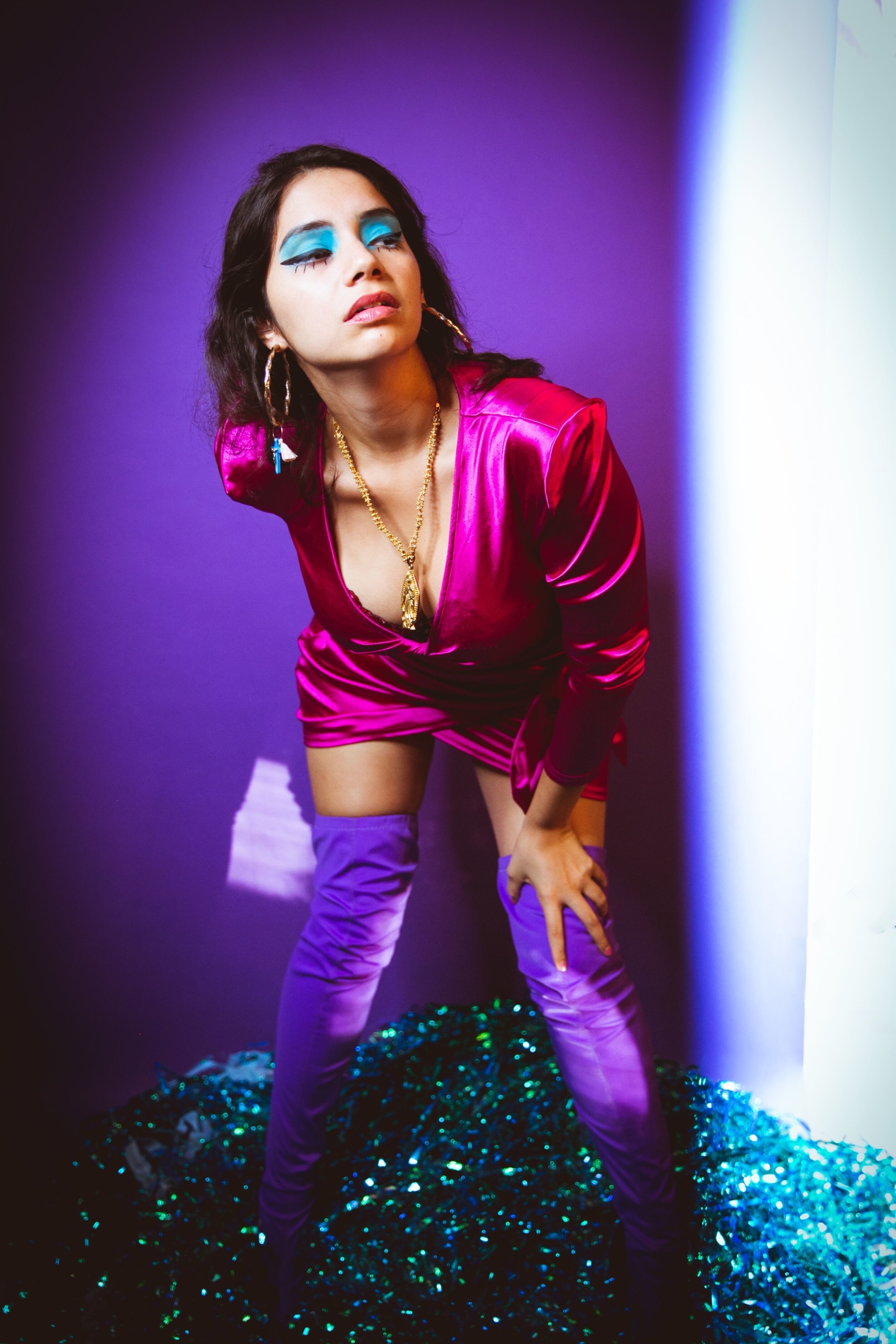
Photo by Katherine Myles.
MACIAS: What’s the song that you think if everyone listened to, it would change the world?
GARCIA: When I was at Tropicalia, I got to see Los Tigres Del Norte, and they performed “Jaula de Oro”. That shit was really powerful. Really fucking powerful. I was just like, man, I wish more people understood Spanish and could understand what they’re talking about.
MACIAS: It’s very human, and it applies to a lot of things. If you had to pick a favorite of your songs …?
GARCIA: I like the sentiment behind “I Don’t Believe in Death.” It’s the first song on the album and it’s one of the more abstract things that I chose to write about. I’m just talking about how all of our souls are so full of life. I think that the things that you do in your life live even past your human flesh. I don’t believe in death. I like thinking about all the great artists and thinkers of the world that did pass, but they left a legacy. They left their imprint on their corner of the world. I really do like the idea of people’s souls being monuments that stick around on our planet.
Listen to Angelica Garcia’s “Add To Queue” playlist below, and follow Interview on Spotify for more.



